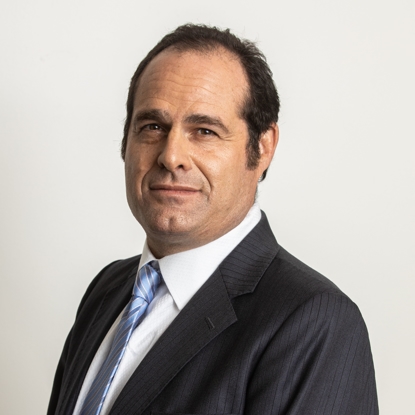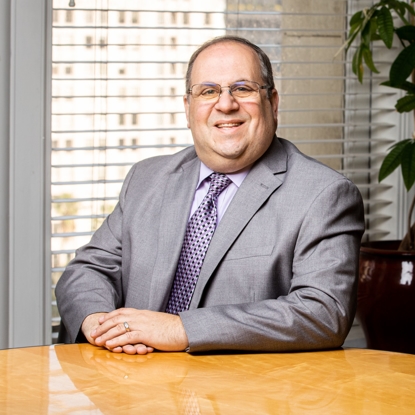
Los Angeles Repossession Lawyers
Avoiding Vehicle Repossession & Foreclosure
If you live in Los Angeles, chances are you know just how important it is to have a car. But what if that car was repossessed? How would you get around? How would you get to your job? And what can you do if you’re facing repossession? If your lender is threatening repossession because you are behind on your car loan, or if you are late with your mortgage and concerned about foreclosure, you may be able to find relief through bankruptcy.
At RHM LAW LLP, we take pride in helping clients throughout Southern California keep the property they worked so hard to obtain. By filing Chapter 7 or Chapter 13 bankruptcy, you can put an immediate stop to repossession and foreclosure actions. Our attorneys welcome the opportunity to meet with you during a 30-minute risk-free consultation and explain how the bankruptcy process works.
Contact our car repossession attorneys in Los Angeles at (213) 344-0043 to schedule your appointment.
What is Repossession?
Repossession is when a creditor decides to take your property without first suing you. The main form of repossession is car repossession, but many other things can be repossessed, including household appliances, large screen TVs, or any other item of your property that can serve as security for a loan
This property will serve as collateral for the loan or other debt that you owe to the creditor. Typically, defaulting on a loan means that you have not made your monthly payments in full and on time. But you can also default on your loan if you do not maintain other areas of your property. For example, you do not maintain insurance coverage on a car you financed.
There are strict rules that cover what and what cannot be repossessed by a creditor if you default on a loan.
How Repossession Works
Repossession is as a process triggered when a creditor reclaims an asset, commonly an automobile, due to a borrower's inability to meet scheduled payments.
Upon financing or leasing a vehicle, you enter into a legal contract with the lender, delineating your responsibility to fulfill regular loan payments. Failing to honor these commitments may grant the lender the legal right to initiate the repossession process.
The process starts with the lender issuing a default notice, emphasizing missed payments, and offering an avenue to rectify the situation. If a resolution is not reached, the lender may proceed with repossessing the vehicle. This repossession can happen in several ways, ranging from dispatching a repossession agent for physical retrieval to towing the vehicle from your premises.
After repossession, the lender often auctions off the vehicle to recover their losses. In instances where the auction proceeds fall short of settling the debt, you might remain accountable for the residual amount, termed a deficiency.
Navigating repossession and its legal implications can be challenging, but you don't have to face it alone. Our team of certified bankruptcy specialists at RHM LAW LLP is here to offer you a 30-minute risk-free consultation. With our extensive experience in handling thousands of bankruptcy cases and our team of top-rated attorneys, we are dedicated to providing you with comprehensive guidance and effective solutions. Speak with a Los Angeles repossession attorney at (213) 344-0043.
What Can Be Repossessed?
A number of things can be repossessed if you default on a loan, including:
- Your home. When your home is repossessed it is called a foreclosure. This is when you default on your home loan and cannot make your mortgage payments. The lender evicts you and then sells the property in order to recover as much of the outstanding loan as possible.
- Your car. Most auto loans allow a creditor to repossess the car if you do not pay the loan and default on payments. The car is then sold to help the lender recover the money. There are a number of things that can be done in this situation. Read on to learn about your options.
- Rent-to-own items. These items include: furniture, electronics, appliances, and anything else you rent with the option of purchasing.
- Any property used as collateral. A debt is secured can be secured by offering up another piece of property (called collateral) as a guarantee of repayment of the debt. If the debt is not repaid, then a creditor is allowed to take that property through repossession.
A credit agreement will detail what “default” on that specific loan means. This can be for a number of things, including being behind on payments or not maintaining proper insurance, as with a car.
Can My Car Be Repossessed If I Make Partial Payments?
Navigating the car repossession in response to partial payments is anything but easy. The outcome depends on a number of conditions -- a simple "yes" or "no" doesn’t quite cut it. To get the best idea on the fate of your car after partial payments, it’s best to speak with a professional, reputable Los Angeles repossession attorney at RHM LAW LLP. We have years of experience helping clients dealing with significant debt and we can provide you informed advice based on your situation.
Partial payments, while reflecting your intent to fulfill your financial obligations, might not always provide complete protection against repossession. The specifics of your agreement with the lender and the terms outlined in your contract play a significant role. If the terms of your agreement explicitly state that partial payments are acceptable and will not result in repossession, you may be in a safer position. However, if the lender has the right to repossess the vehicle for any missed or partial payments, your car could still be at risk.
Options to Get Your Car Back
If your car has been repossessed as collateral, and you want it back, there are several options you can employ. Here are those options:
- Paying off the loan (redemption): The bets way you can ensure you’ll get your car back is by paying off the loan. This is called exercising your right of redemption. To fully “redeem” your loam, you will be required to pay back the entire balance of the loan, in addition to certain fees and costs (such as repossession and storage fees). The bank or creditor is required to send you written notice that has all the information about how to redeem the possession, such as the telephone number for you to call to find out the exact payoff amount and how to make the payment. You are able to redeem the car at any time prior to the private sale or bank auction. If you don’t receive the notification within five days of your property being repossessed, you should contact the creditor or bank right away to get the payoff amount in addition to instructions for how to redeem your property. Your right to redemption ends when the property is sold.
- Reinstating the loan: If it’s allowed in your state or by contract, you are able to redeem the car or reinstate the loan.
- Buy back the vehicle at a public auction: If your car is to be sold at public auction you are able to attend the auction and bid on it yourself. The bank is required to give you notice of the public auction your car will be sold at.
- Negotiate with the bank: Work with a repossession lawyer to negotiate with the creditor to get the car back. This can involve negotiating a partial reinstatement, new payment plan, or refinancing a loan. While you are not required to use a lawyer, it is advised, as they will be able to build your case for why you should be able to get the car back. Most repossession lawyers also offer payment plans for their services.
Regardless of what decision you make, you will need to act quickly. If a debtor has repossessed your car, van, truck, motorcycle, or other vehicle or piece of personal property, and you want it back, you’ll need to act quickly. That being said, it’s important that you understand the idea of “reasonable time.” A lender is required to give you “reasonable time” to exercise any of the above options before it sells your possession. If you do not take action within this “reasonable time” period, you’ll lose the opportunity to get back your possessions.
Bankruptcy Can Protect Your Car & House
When you file bankruptcy, an automatic stay goes into effect. This instantly halts any repossession or foreclosure actions, giving you some breathing room to figure out your next move.
- If you file Chapter 7 bankruptcy, your unsecured debts are discharged, freeing up money to pay your car loan or mortgage.
- If you file Chapter 13 bankruptcy, you are able to repay the past due amount over a period of three to five years, without incurring penalties.
The Bankruptcy Code also allows for other actions that can help you keep your property. With a Chapter 13 bankruptcy, you can eliminate a second mortgage if the value of your home is less than the value of the original mortgage. In certain situations, you can lower the balance of your car loan to the vehicle’s current value and extend the length of the loan, making the payments more manageable. With Chapter 13 bankruptcy, you can immediately begin a repayment plan which is often lower than your current auto payment by reducing the car to fair market value.
Were Your Rights Violated During Repossession?
If you believe the bank violated your rights during the repossession, such as not informing you properly and with enough notice, or by breaching the peace, you can use this as bargaining leverage to get the car or property back. You’ll want to contact a lawyer to advise you on your legal rights when it comes to repossession. Make sure you record all the dates and times – specifically when you received notices, calls, etc. This information will help a lawyer build your case and potentially get your car or other possessions back.
Take Action to Stop Repossession & Foreclosure
Being proactive in this situation can mean the difference between getting your belongings back and losing it to repossession. If more than five days have passed since the property has been repossessed and you still haven’t received a notice from the bank or creditor, do not wait any longer.
The earlier you act to protect your property, the better position you are in to avoid repossession and foreclosure. Speak with an experienced Los Angeles bankruptcy lawyer to learn what you can do to fight the car repossession and retain what you have worked so hard to purchase. Se habla español.
Talk To A Skillful Los Angeles Repossession Lawyer
At RHM LAW LLP, we offer a 30-minute risk-free consultation to discuss your specific circumstances. With an extensive track record of successfully handling thousands of bankruptcy cases, our top-rated attorneys are well-equipped to assess your unique circumstances and guide you through the complexities of repossession laws.
We take pride in serving our diverse clientele in English, Spanish, and Farsi, ensuring clear and effective communication. Our commitment to the Los Angeles community spans over 20 years, demonstrating our extensive experience and dedication to protecting your rights and interests. When it comes to navigating repossession concerns and the intricacies of bankruptcy law, trust RHM LAW LLP to provide you with reliable legal counsel that puts your best interests first. Speak with a Los Angeles repossession lawyer today.
Call a Los Angeles repossession lawyer at RHM LAW LLP by dialing (213) 344-0043 to find out how you can protect your property.

RHM LAW LLP
Meet Our Los Angeles Bankruptcy Specialists
-
 M. Jonathan Hayes Senior Counsel
M. Jonathan Hayes Senior Counsel -
 Matt D. Resnik | Managing Partner Certified Bankruptcy Specialist
Matt D. Resnik | Managing Partner Certified Bankruptcy Specialist -
 Roksana D. Moradi-Brovia | Partner Certified Bankruptcy Specialist
Roksana D. Moradi-Brovia | Partner Certified Bankruptcy Specialist -
 W. Sloan Youkstetter | Associate Attorney Certified Bankruptcy Specialist
W. Sloan Youkstetter | Associate Attorney Certified Bankruptcy Specialist -
 Russell J. Stong III | Associate Attorney Certified Bankruptcy Specialist
Russell J. Stong III | Associate Attorney Certified Bankruptcy Specialist -
 David M. Kritzer Associate Attorney
David M. Kritzer Associate Attorney

We Wrote the Book on Bankruptcy
Get Your Copy Today
-
 A Summary of Bankruptcy Law: Third Edition
A Summary of Bankruptcy Law: Third Edition -
 Summary of Chapter 13
Summary of Chapter 13

Committed to making the process as stress-free as possible for our clients, our Los Angeles bankruptcy attorneys and dedicated staff will handle everything for you. From filling out paperwork through getting end results, we will work to help your case run smoothly and efficiently. We serve our clients in English, Spanish and Farsi.







